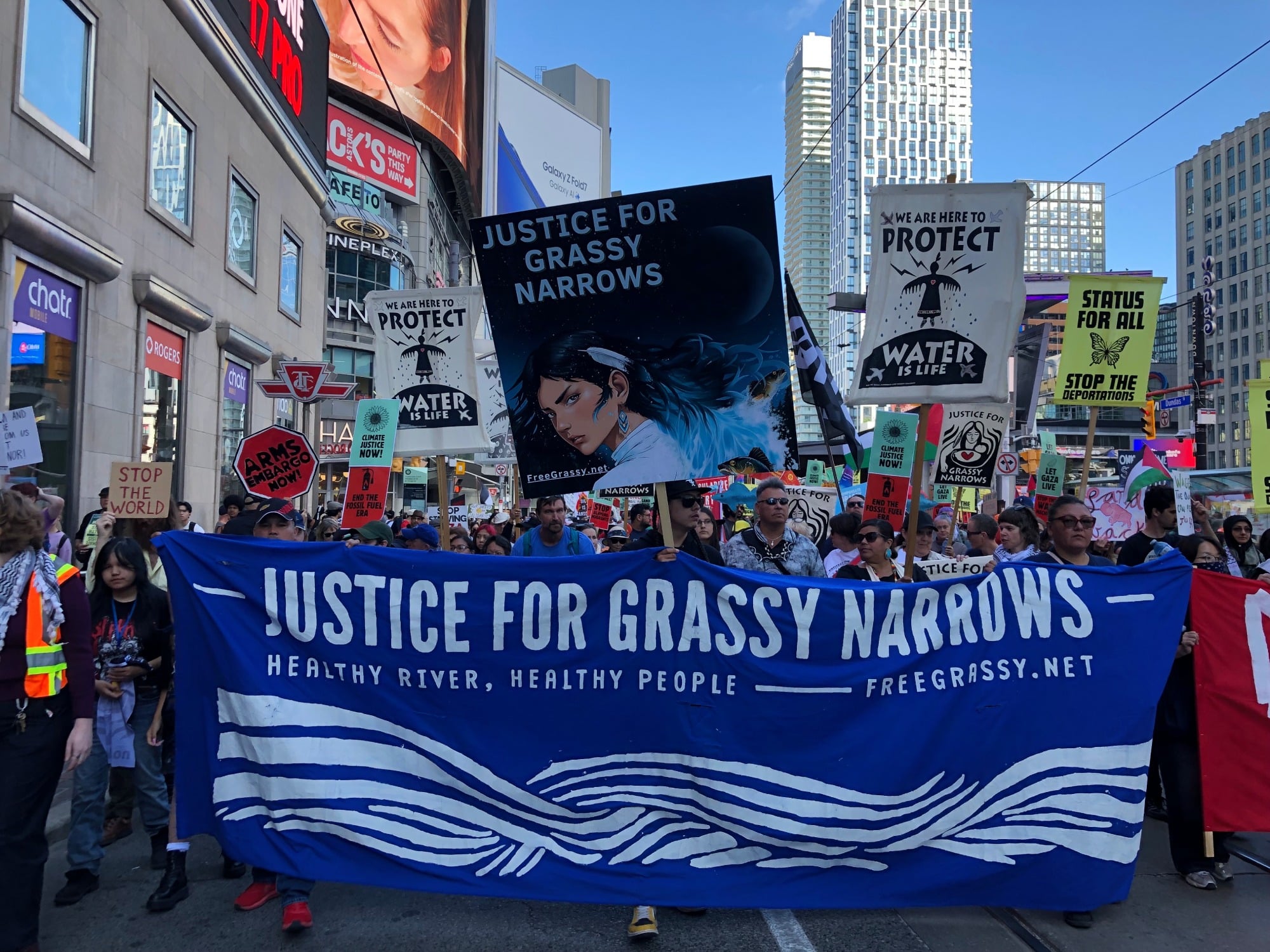On Saturday 20 September, CPTers joined up to 10,000 people in downtown Toronto to Draw the Line in opposition to federal government policies that increase wealth disparity, cut public services, fuel climate collapse, threaten migrants, exploit Indigenous lands, and promote militarism. As Prime Minister Mark Carney prepares to introduce his fall budget, already announced as an “austerity” budget, social movements came together to demand that the Canadian government prioritize communities over billionaires. Grandparents, parents and youth from Grassy Narrows First Nation led the march alongside members of the Migrant Workers’ Alliance for Change.
Across Canada, tens of thousands of people in more than 70 communities gathered in support of five demands:
- Put people over corporate profit. Fund our families and communities.
- Refuse ongoing colonialism. Uphold Indigenous sovereignty.
- Stop blaming migrants. Demand full immigration status for all now!
- End the war machine. Stand for justice and peace.
- End the era of fossil fuels. Protect Mother Earth.
In Toronto, Indigenous land defenders and water protectors marched with migrant justice advocates, climate activists, peace activists, Palestine solidarity activists, union members, tenant-rights and anti-poverty groups, socialist groups, and members of a broad array of community organizations, filling the street for blocks. Despite a heavy police presence blocking off the most direct routes, the march arrived at the Ontario legislature at Queen’s Park. Grassy Narrows grandmother Chrissy Isaacs called out the Ontario government’s failure to address 60 years of mercury poisoning, asserted First Nations’ right to clean water and demanded the closure of the paper and pulp mill which continues to pollute the English-Wabigoon River system. Other Indigenous leaders, migrant-rights organizers, Palestinian advocates and climate organizers condemned government policies that harm people and the earth, and proclaimed a commitment to sustained resistance.
Carney’s government has already reversed many of the gains that social movements have won over decades of struggle. They have pushed through Bill C-5 to fast-track industrial projects without proper environmental assessments or the consent of Indigenous communities, and appointed the former CEO of Trans Mountain pipeline to lead a new Major Projects Office. They have positioned themselves against striking workers at Air Canada and Canada Post. They have promised 15% government spending cuts over three years, threatening tens of thousands of public sector jobs and social programs that save and improve lives. Meanwhile, they have capitulated to President Trump’s demands of NATO allies and promised to quadruple the military budget. They have proposed Bill C-2, which would allow the government to cancel immigration permits en masse, restrict asylum claims, and expand warrantless surveillance on all Canadians.
The Draw the Line day of action demonstrated firm solidarity between social movements struggling for a better future. We will not be divided by politicians’ scapegoating and fearmongering tactics. The interconnected crises that we face – climate chaos, growing inequality, fraying social cohesion and a rise in violent nationalism – call for a decisive shift to prioritize life on earth over the interests of capital. In the words of Rachel Small of World Beyond War, “We demand investment in food and homes, not bombs, in welfare and healthcare, not warfare.”




